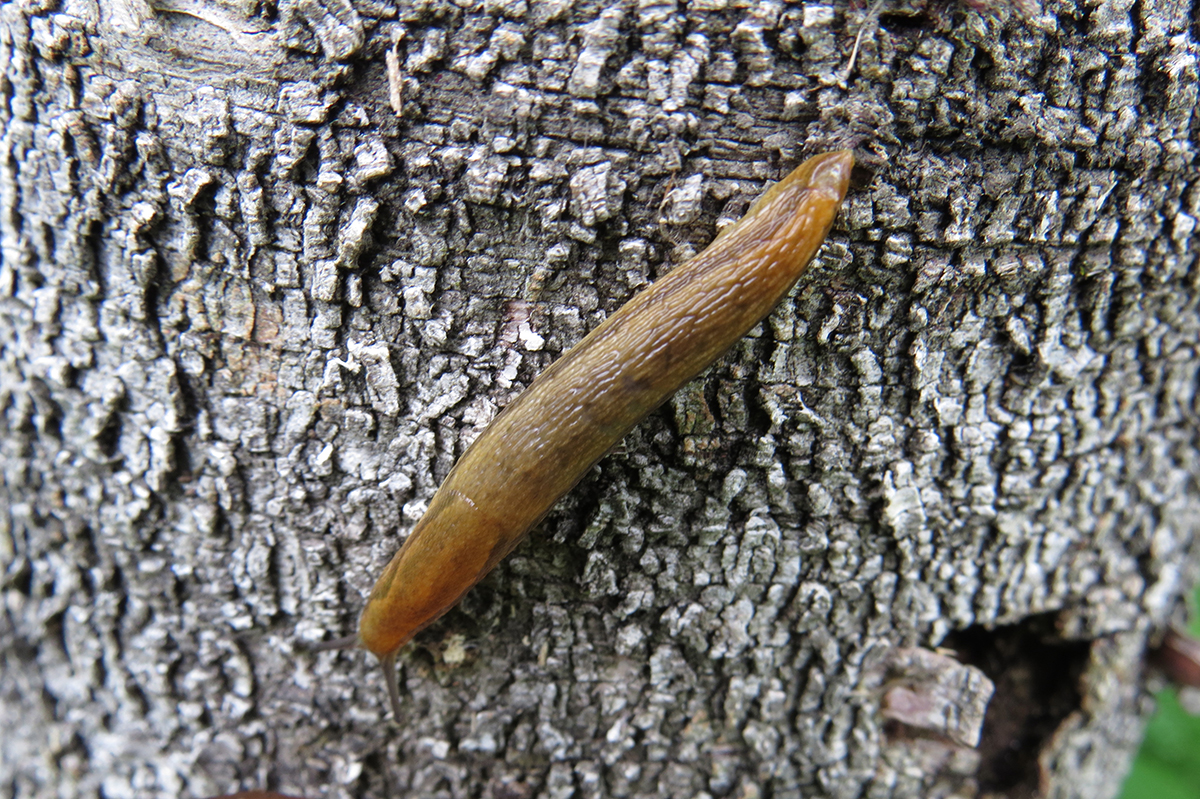The Chart: Local Health and Science News You Missed This Week

Dusky Arion slug photo by Lindsey on Flickr/Creative Commons
Surgery’s for the slugs.
Surgical patients of the future may owe a lot to slugs.
Jianyu Li, a materials scientist at Harvard’s Wyss Institute for Biologically Inspired Engineering, and his team have been searching for a flexible but durable adhesive that could be used to better repair organs during surgery. And, in a new paper, they write that inspiration came from an unexpected source: the Dusky Arion slug.
When scared, the slug releases a sticky substance that can effectively attach it to a surface, protecting it from predators. Crucially, the substance doesn’t dry out and harden, making it an excellent jumping off point for a new surgical tool. Li and his colleagues describe their slug-inspired creation—a sticky, water-based patch—in the journal Science.
Getting closer to an HIV vaccine.
An experimental preventative HIV vaccine is looking promising in early-stage clinical trials led by researchers at Beth Israel Deaconess Medical Center (BIDMC). The vaccine uses genetic sequences from common strains of HIV seen around the world, embedded within a non-replicating human cold virus. The hope is that, by using multiple strains, the injection could offer patients robust protection from the disease. And though it’s very early days, BIDMC’s research looks promising. Of 393 healthy volunteers who received the most promising formulation of the vaccine, 100 percent responded well and developed the desired antibodies. Read more about the project here.
Never forget a pill again.
Countless health problems could be avoided if patients took their medications exactly as prescribed. Many patients, however, miss doses or purposely taper off of drugs too early, especially in the developing world.
A new gadget from MIT and Brigham and Women’s Hospital could change that. Led by legendary scientist Robert Langer, a research team developed a long-lasting capsule that could live in the stomach for up to nine days, slowly releasing medication the entire time. The capsule, which is made of a material derived from seaweed and a tough polymer, can withstand the harsh environment of the stomach without breaking down, but can self-destruct in case of emergency. Read all about it in Nature Communications.


